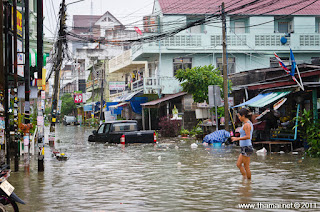As occupants of Earth, we
absolutely have a moral obligation to protect this plant. The path our environment is headed down is
dangerous and coming towards us quickly.
Shelia Watt-Cloutier called this environment problem, “the second wave”
in “The Inuit Right to Culture Based on Ice and Snow.”
This second wave is coming
quickly. As communities, it is necessary
to take actions to protect, not just our futures, but also the futures of our
children and our children’s children.
Watt-Cloutier talked about this second wave of environmental degradation
making a huge impact on her homelands lifestyle and culture. As the climate change sets in and melts the
snow and ice of her northern homeland, her people can’t travel the way they did
before, and the children are unable to be taught the same traits because the previous
methods are becoming nearly impossible.
This cannot continue to our
planet. The way cultures have grown and
functioned around the globe need the option of continuing on their paths, not
be shut down because the methods become unavailable thanks to pollution. We have a moral obligation to save the
generations to come. They deserve the
same quality of life as we do today, if not better.
Thailand faces just about every
environmental issue out there, it seems.
Pollution in the air and water, a decreasing population of wildlife,
deforestation, soil erosion, water scarcity, and hazardous water issues. As one of the fastest industrial growing
countries in South East Asia, these issues are too easily overlooked.
 |
|
Flooding
in Bangkok, Thailand causing water pollution and exposing the Thai people to
sewage
|
Dr. Xu Ping of Assumption
University in Thailand wrote an article titled, “Environmental Problems and Green
Lifestyles in Thailand,” about the environmental issues and possible remedies. First off, the change in climate caused by
pollution is causing floods. Thus resulting in soil erosion in the country and
water pollution as objects on the ground are moved into the water. Deforestation kicks out the wildlife causing
a decline in the animal population. As
you can tell, many of the problems are linked to one another and just continue
to incline as no action is taken. Dr. Xu
Ping made the suggestion of the Thai government spending more money educating
the citizens of environmental problems to spread awareness.
Dr. Ping wrote, “In order to tackle
the challenges of environmental degradation and achieve greener and cleaner
environmental goal, Thai people should rethink of the emergency of
environmental protection.” As citizens
become more aware, I think the moral obligation will grow inside them as well,
same with the rest of the world.
Currently, water.org is not
involved in Thailand, but many other environmental organizations are. A large group called WWF (World Wildlife
Fund) Global, that is very popular, has an office in Thailand. This program works on environmental and
conservation problems across the entire country. Their mission is to stop the degradation of
our natural environment and create a brighter future where “humans live in
harmony with nature.”
 |
|
Members
of WWF getting involved with cleaning up Thailand's water
|
A non-profit called TEI, Thailand
Environment Institute, also takes control on environmental issues in the
country. TEI has many national and
private partners to get the job done.
Although not a government organization, TEI links with the government as
well to increase the quality of life in Thailand. On a regional and global level, TEI is
spreading the approach to share environmental responsibility. On their website www.delosea.eu, TEI lists their partnerships
and achievements. As the organization
grows, more and more people come together to save Thailand’s environment.
Overall, saving the environment in
Thailand, or anywhere in the world, starts with becoming educated about the
problems we are facing. The Thai people
need to learn more about ways to prevent pollution and deforestation, just to
name a few, through their everyday life just like the rest of the world needs to
focus on the problems their own homelands are creating. Education is key in saving the future of our
home, Earth.
No comments:
Post a Comment